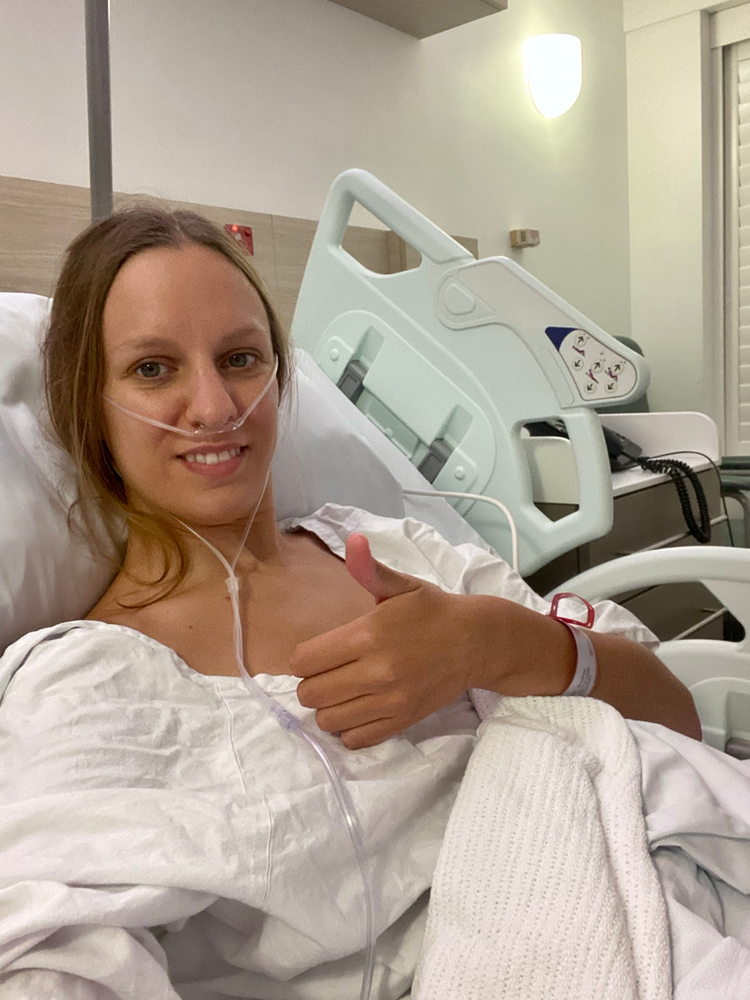Let’s begin with a proper introduction, starting with pronunciation. Endometriosis is pronounced en-doh-mee-tree-oh-sis. In recent years, the word endometriosis has gained some attention; chances are you’re familiar with the word. As little as 10 years ago, this was not the case.
Endometriosis
On my glass-half-full days, I am impressed by the strides being made. The government has developed an action plan and injected much-needed funding towards endometriosis awareness, education, management, care, and research. Prominent figures are sharing their journeys, and, at least in my circles, when I talk about endometriosis, I am not met with a puzzled look and an ‘endo what?’ response (though, perhaps this is because I so often talk about endometriosis to the people in my life).
Then there are the other times, usually on bad pain days or when I hear medical professionals spout incorrect and outdated research when I am frustrated and dismayed by how little we know about this prominent disease.
Diagnosis
I was formally diagnosed with endometriosis in 2015 at age 25. Knowing what I know now, it is clear I suffered from endometriosis since my first period (which, fun fact, occurred on April Fools Day. I ignorantly thought one of my friends pulled off an impressive prank when I first noticed the blood stain on my school dress).
 Since that day, I have suffered debilitating pain with all sorts of weird symptoms such as numbness, sciatic pain, lower back pain, severe bloating, chronic uterus pain (present throughout my whole cycle), disturbed bowel movements, and the strangest of all — spasms in my anus and vagina so intense I feared prolapse. My symptoms commonly left me bedridden, and I would often miss school and social activities.
Since that day, I have suffered debilitating pain with all sorts of weird symptoms such as numbness, sciatic pain, lower back pain, severe bloating, chronic uterus pain (present throughout my whole cycle), disturbed bowel movements, and the strangest of all — spasms in my anus and vagina so intense I feared prolapse. My symptoms commonly left me bedridden, and I would often miss school and social activities.
Menorrhagia is the term for periods that last more than 7 days or for blood loss greater than 80ml. I had both — and a 21-day cycle. It became a running joke in my peer group that I always had my period. While I knew from what little we were taught at school that my period cycle was not normal, I never questioned it. No one around me suggested I should. Some women were just unlucky, and that was me. I was given various medications to suppress the symptoms over the years, but the word endometriosis was never uttered.
I first heard the word when I met a girl at university to whom I relayed a story about fainting while walking up a staircase. She (rightfully) told me that pain that interfered with daily life was not normal and urged me to seek specialist care.
It’s been a few years since I first heard the word endometriosis. I have since been formally diagnosed with endometriosis, had emergency room visits due to ovarian torsion and internal bleeding, and two surgeries, drastically different in terms of surgeon skill and post-surgery relief.
My journey with endometriosis has not been linear, but I have learnt the power of knowledge and proactiveness. If you’re reading this and suffering from endometriosis, I urge you to do one thing: arm yourself with knowledge.
There is a plethora of information regarding endometriosis available online. Unfortunately, this means there is also misinformation but don’t be dismayed! Websites like Endometriosis Australia are a great place to start. You will find up-to-date information, links to peer-reviewed research, support groups, and tips and tricks for managing endometriosis.
Lessons
Throughout my long and, at times, tumultuous journey, I have learnt a few prominent lessons I wish to impart:
1. Listen to your body. If you feel like something isn’t right, please investigate and don’t stop until you get an answer or treatment plan that works for you.
2. Keep a journal of your symptoms and take this to medical appointments. Not only does keeping a journal provide medical practitioners with valuable information, but it can also be reassuring to return to documented symptoms anytime that pesky little doubting voice enters your head and tries to minimise your experience. A diary may reveal a pattern and help with symptom management. Include information about your diet, sleep, exercise, bowel, and bladder movements, where you are in your cycle, when you have pain and when you don’t and details about your menstruation length and flow rate.
3. Educate yourself. I have already mentioned it, but it bears repeating. Because we live in a world where endometriosis diagnosis is delayed and symptoms are often misattributed or dismissed, arming yourself with knowledge is critical. Being able to assert yourself can be much easier when you have the power of knowledge.
4. Keep seeking until you find the right specialist for you. If it doesn’t feel right, trust your gut. I was so desperate for an answer that I blindly jumped into my first surgery despite not feeling heard by my GP or specialist. I knew from my first appointment that I didn’t like my gynaecologist, but with the prospect of answers so tangible, I convinced myself I was in good hands. The second time around, I researched and felt prepared. My surgeon and I clicked, and I’ve had a better outcome.
5. If possible, find a teaching endometriosis specialist who is a member of the Australian Gynaecological Endoscopy and Surgery (AGES) Society and the Royal Australian and New Zealand College of Obstetricians and Gynaecologists RANZCOG. These specialists must meet eligibility criteria to remain members, including being at the forefront of research.
6. Lastly, if it feels right to you, explore alternative therapies and treatment options and be open to treating the disease holistically. There is no known cure for endometriosis, but you may find relief from alternative therapies and treatment. You can access research regarding diet, acupuncture, lifestyle changes, and medications, and I encourage you to safely explore these. My favourite piece of armour is a psychologist. Dealing with chronic pain can take its toll on your mental health. Having an objective person to debrief with can be healing. Especially if you have spent so long having your symptoms dismissed.
Written by,
Andrea Penze, Endo Warrior

